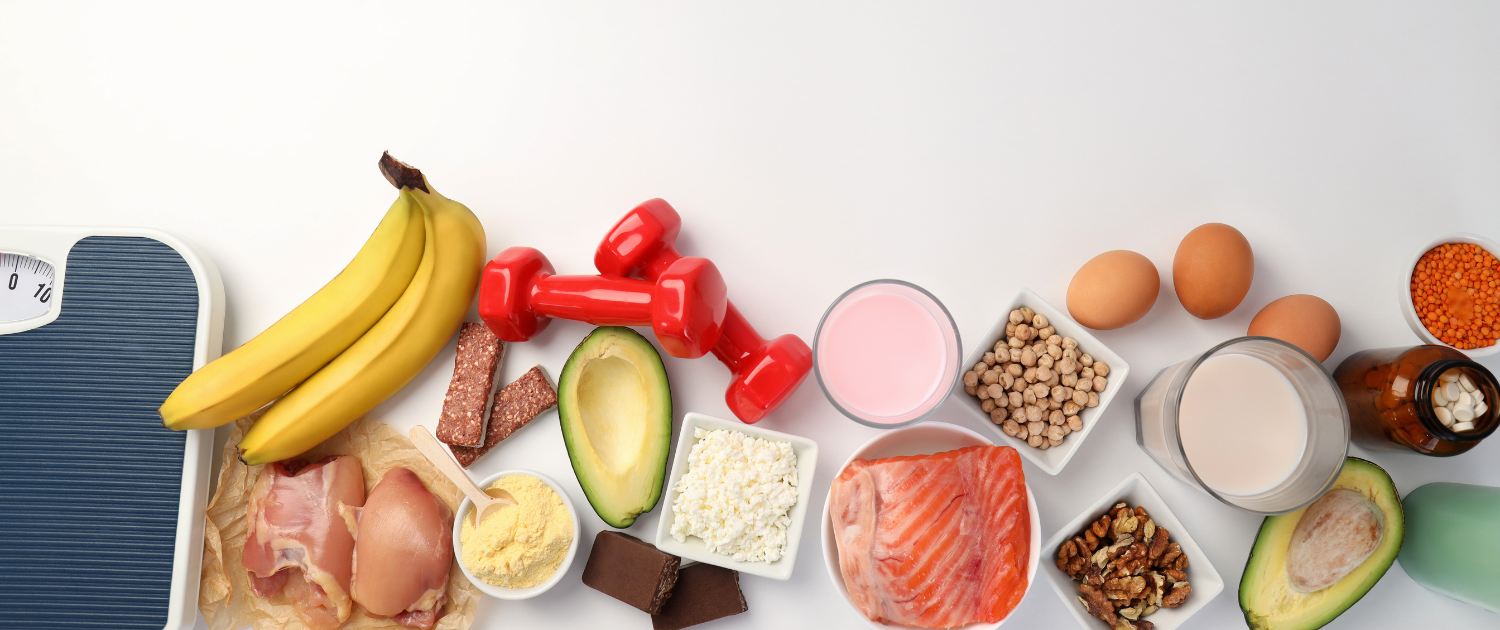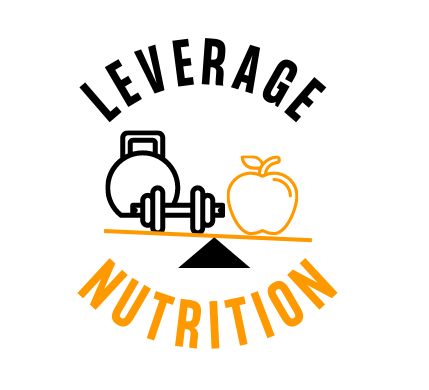
Nutrient timing is pretty important when it comes to maximizing performance and results. That being said, a lot of people make it more complicated than they need to – especially when it comes to supplements.
The first important thing to address when considering your Pre and Post nutrition needs: what are you trying to accomplish? Is your goal to: build muscle, lose fat, increase strength, improve performance, or just be healthy?
The reason why the above matters is different goals require slightly different nutritional approaches, specifically more or less calories, and different ranges of macronutrients (protein, fat, carbs). What you eat before fuels your workout and exercise. What you eat after will allow for effective recovery.
In the following post, the term “workout” will mean weight training, and the term “exercise” will mean playing or training for a sport.
Pre Workout/Exercise Nutrition
The purpose of proper pre workout/exercise nutrition is to provide fuel so you can perform. Different types and intensities of exercise require a slightly different nutritional approach.
Two examples to highlight this:
- If you are an endurance athlete optimizing for training performance, you need adequate carbohydrates to fuel the workout completely and enough protein to offset and prevent muscle metabolism during exercise.
- If you are someone looking to lose fat while minimizing muscle loss, you need enough carbohydrates to fuel the workout so that you can “bring it” and enough protein to offset any possible muscle usage for energy – during exercise and in general due to being in a caloric deficit necessary for fat loss.
My suggestion for Pre Workout/Exercise session:
A balanced meal 3 hours prior, and then 1 black coffee and a banana 1 hour prior to exercise/workout
Well balanced = combination of fats, protein, and carbs. A bigger meal for a bigger workout/exercise session. In general 3 hours before should allow for proper digestion of the food, so that your muscles and digestion system aren’t competing for blood supply. The coffee is used for an ergogenic caffeine kick, and a banana for a quick little boost of energy (the sugars in a banana are easily digestible and will top up your energy).
If you’re looking to build muscle, which means you’ll want more calories, this might look like:
5:00 p.m. workout preparation:
- 2:00 p.m: Chicken Bacon Ranch Mac & Cheese, side greens salad.
- 4:00 p.m: large banana & black coffee.
Morning workout/exercise preparation:
- 1.5 hours prior: peanut butter sandwich, glass of 2% Milk
- 1 hour prior: black coffee
If you’re looking to lean out and lose fat, this might look like:
5:00 p.m. workout/exercise preparation:
- 2:00 p.m 2 Homemade Jalapeno burgers (no bun) + side Greek Yogurt Cucumber Salad.
- 4:00 p.m. 1 medium banana + black coffee.
Morning workout/exercise preparation:
- 1.5 hours prior: 2 egg muffins.
- 1 hour prior: black coffee
*In all of the above examples, the coffee used in the above examples is black -or with just sweetener. If you’re someone that puts sugar in their coffee, then skip the banana.
Some background info for you to know that might help you understand pre-workout/exercise nutrition better:
- Digestion of food shunts a lot of your blood supply to the organs involved in digestion. This is why you don’t want to exercise on a full stomach (why it’s recommended not to go swimming right after you eat) as this causes a tug-of-war or sorts for blood supply between your digestion system and the muscles you’re using for exercise. This can lead to cramping – either your digestion system or your muscles.
- Higher heart rate and higher intensity (think heavy set of squats) exercise have a greater demand on your blood supply. This is when you need to be more calculated about meal timing and what you’re eating prior. Going for a walk with a full stomach is fine, sprinting not so much.
A few talking points:
- Everyone has slightly different digestion. Some can eat a full meal 1 hour before a high heart rate/high intensity bout of exercise and be fine. Others can’t eat anything less than 3 hours out. Find out what works for you, and know that the type of exercising you’re doing plays a big factor with meal timing.
- One thing to be conscious of when choosing a carb-intensive snack, like the Banana mentioned, is to pick options that don’t have the ingredient fructose as the first few ingredients in the ingredient label. Fructose digests differently and can lead to issues like cramping, bloating, gas, etc.
- I haven’t mentioned the need for any “Pre-workout supplement.” My personal opinion is that you don’t need it. I don’t like the dependency supplements can create, and quite frankly I don’t think it’s worth your money for an incremental increase in results beyond a placebo and the “supplement effect”.
The supplement effect: taking said supplement increases your adherence to a host of other things that have a positive impact in achieving the desired result you are taking the supplement for.
- In almost all cases it’s proper nutrition and consistently working out/exercising is getting you the results, not the supplement(s). The actual effect from the supplement(s) are small or negligible, or at least maybe not worth the price tag of said supplements. My suggestion: become dependent on food, and maybe coffee.
Post Workout/Exercise Nutrition
Your post workout/exercise nutrition will do a combination of the following:
- Replenish muscle glycogen that was depleted during your workout
- Reduce muscle protein breakdown caused by exercise
- Increase muscle protein synthesis
- Reduce muscle soreness and fatigue
- Greatly enhance overall recovery
- Reduce cortisol levels
Essentially, your post workout/exercise nutrition will supply your body with everything it needs to repair, replenish, recover and adapt to the exercise/training that you just did. After your workout, your body is primed and ready to accept protein and carbs so it can immediately begin putting these nutrients to use.
Within 30-60 minutes to an hour post-workout it’s beneficial to have a well balanced meal, in particular something with protein.
My suggestion for Post Workout nutrition:
A protein focused meal within 1 hour. If that’s not possible, have a piece of fruit + protein shake.
What you need and how much will depend on the type and intensity of the training that you just did, and on your specific goal(s). If you had a longer and more intense workout/exercise, have more food (primarily protein + calories). For shorter and less intense workouts/exercise sessions, have less food.
If you’re looking to build muscle, you might have something like:
- Morning option: 6 eggs, scrambled, topped with 1/2 cup shredded cheese. Side of 2 pieces of toast, 3 tbsp. peanut butter on each slice.
- Mid-day/supper option: 2 Servings of Cheeseburger Brussel Sprouts (recipe alteration: use extra cheese + non-lean ground beef), side of Super Simple Spinach Salad
- On-the-go option: 2 pieces of fruit + protein shake (1.5 scoops of protein powder + 2 cup of 2% milk)
If you are looking to lose fat, instead you could have the following:
- Morning option: 2 eggs, 1/2 cup egg whites scrambled, topped with 1/4 cup salsa, and 1/2 cup cottage cheese. Side of sliced apples topped with sprinkled cinnamon.
- Mid-day/supper option: 2 Turkey Parmesan Meatballs, 1 cup brown rice, 2 cups of steamed/cut up vegetables
- On-the-go option: 1 piece of fruit + protein shake (1 scoop of protein powder + 1.5 cup water or skim milk)
What you eat before your workout/exercise is the fuel that will allow you to perform. What you eat after will allow for effective recovery.
Experiment and find options that are specific for you, including your personal taste preferences, and what you are trying to accomplish. And, don’t over complicate things. Make sure your caloric intake is where it should be, have adequate protein intake, and crush those workouts/exercise and you’ll be fine.
Till next time,
-Mike
